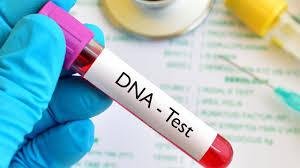In a revelation that’s sending shockwaves through families across Nigeria, a groundbreaking DNA report has uncovered a startling truth: one in four men tested in Lagos may not be the biological fathers of the children they’ve been raising. This explosive finding comes straight from Smart DNA’s 2025 Annual DNA Testing Report, covering data from July 2024 to June 2025, and it’s igniting fierce debates about trust, infidelity, and family bonds in Africa’s most populous city- Lagos. While the numbers paint a picture of widespread paternity doubts, experts warn that the reality might be even more complex than the headlines suggest, as these tests aren’t drawn from everyday households but from those already plagued by suspicion.
Picture this: a father, driven by nagging doubts, submits to a DNA swab only to have his world shattered when the results come back negative. According to the report, a whopping 25% of all paternity tests conducted returned such heartbreaking outcomes, marking a slight dip from the 27% figure reported just a year earlier. But here’s where it gets truly alarming – the vast majority of these tests, around 83.7%, were initiated for “peace of mind” reasons, primarily by men harboring deep-seated uncertainties about their children’s origins. This means the sample isn’t random; it’s skewed toward high-drama scenarios where infidelity or mix-ups are already suspected, potentially inflating the stats far beyond what the average Lagos family experiences.
Lagos, the bustling economic heart of Nigeria, emerges as the epicenter of this paternity puzzle, with nearly 70% of all tests nationwide originating from the city. The report doesn’t break down the negative results exclusively for Lagos, but the overall 25% exclusion rate applies across the board, hinting at a urban hotspot where modern lifestyles, migration, and social pressures might be fueling these discrepancies. Even more intriguing is the pattern among the children involved: firstborns, particularly sons, account for a staggering 64% of the cases where paternity was disproven, raising questions about cultural expectations around heirs and family legacies in Yoruba-dominated communities, which made up over half of the tested cases.
Read also:
- Police Anti-Kidnapping Squad arrests 3 suspected cultists in Calabar, recover firearm
- Three kidnappers killed in Delta, victims rescued
- Kenyan Man claims to be Elon Musk’s firstborn son, demands DNA test
Many media outlets have amplified similar reports in the past, turning these statistics into viral sensations that dominate social feeds and dinner table conversations. Yet, beneath the sensationalism lies a crucial caveat – Smart DNA itself emphasizes that their data is anonymized and drawn from self-selected participants, making it impossible to generalize to the entire population of Lagos fathers. In fact, global studies on non-paternity rates in unbiased populations typically hover between a mere 1% and 10%, suggesting that Nigeria’s figures are more a reflection of testing biases than a nationwide epidemic of deception.
Adding another layer to this unfolding drama, the report highlights a surge in immigration-related DNA tests, now comprising 13.1% of all cases, tied to Nigeria’s growing exodus abroad. As families seek greener pastures, these tests become gatekeepers for visas and reunifications, sometimes uncovering long-buried secrets in the process. It’s a stark reminder of how DNA technology is reshaping not just personal relationships but also societal structures in a country grappling with rapid change.
This isn’t just about numbers; it’s about shattered illusions and the human cost of doubt. Fathers across Lagos are left questioning years of love and investment, while mothers face accusations that could tear households apart. As the conversation explodes online and in living rooms, one thing is clear: the pursuit of truth through DNA is unveiling uncomfortable realities, but it’s also urging a deeper look at why so many are turning to science for answers in the first place. For those caught in the crossfire, the report serves as both a warning and a wake-up call – in the age of accessible testing, family secrets may no longer stay hidden forever.






